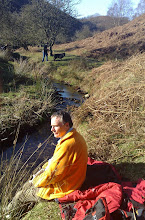 Can poetry employ any sort of language? An odd question, but the beginning poet will often find his diction attacked as cliché or contrived. What can be said? Are there overall principles in important elements of literature?
Can poetry employ any sort of language? An odd question, but the beginning poet will often find his diction attacked as cliché or contrived. What can be said? Are there overall principles in important elements of literature?
Discussion
Diction or word choice is indeed a difficult area. We might look at the practice of successful poets, since what worked for them will presumably work for us, but the overwhelming problem is that fashions change. The concrete, vivid and unpretentious is often preferred today, but the eighteenth century excluded such words, producing manuals to good tasteas indeed did the sixteenth, though with different rules. Movements often start as a reaction to styles that have become flabby or overblown, but manifestos are not always followed through. Wordsworth, for example, championed everyday speech in his preface toLyrical Ballads, but wrote the poetry in an educated tongue.
You'll be concerned with current writing, but even less agreement prevails today on poetry's proper aspirations, styles or content. An innocuous word like upon will pass unnoticed by many editorial boards, but bring automatic rejection from others. Diction shows allegiances, and allegiances are what you must bear in mind when submitting work to magazines and competitions. Diction or word choice is a ground fought over by the contending schools of poetry, and there is no final arbiter.
Some larger observations are possible, however, and they come as much from critics and philosophers as practicing poets. Etymology is important, since the Saxon, Norman or Latin root gives words their characters and dispositions. Too idiomatic an expression calls up the mundane, and is inappropriate in many instances. The poetic diction of the eighteenth century, though much derided today, was an attempt to remove contemporary and irrelevant associations of words and so release the full emphasis of their primary meanings.
You will need to think things through, and not swallow all that pundits say. An abstract language is not necessarily a dead language. "Our literacy programme will make your Government more accountable, and so give back to the disadvantaged majority their ancient birthright of democracy", says the aspiring presidential candidate. "First remove screws E and G", says the workshop manual. Both are using language suited to their purposes, and your work must do the same. Distinctions between abstract and concrete tend to become hazy when etymologies are traced back, moreover, and many abstractions have their root in simple physical processes.
Remember that lexicons are governed by social usage. The Elizabethans embroidered words with religious, courtly and pastoral associations. These trappings were gradually dropped, and the eighteenth century imposed a more correct and classical diction. The Romantics introduce a new inner world with cold, pale, grey, home, child, morning, memory, ear, feel, hold, sleep, turn, weep, etc. Later come moon, stir, water, body, shadow, house.The mid-nineteenth century popularized dead, red, rain, stone. Nineteen thirties poetry was packed with references to industrial buildings and social change. Current poetry is very idiomatic, if not deliberately uncouth .
Suggestions
1. Vocabularies not only reflect interests and fashions, but must be broadly effective in a contemporary setting. That is the argument against poeticisms and out-of date words like thee, 'tis, maiden.
2. Words never possess wholly transparent meanings, but in the more affective poetry their latent associations, multiple meanings, textural suggestions and rhythmic power are naturally given freer rein.
3. The touchstone is always the intended audience. "Word too familiar, or too remote, defeat the purpose of a poet," said Johnson, and that observation remains true, as much for traditionalists writing inside a poetic tradition as for others trying to kindle poetry out of naked experience.
4. Place your poems alongside others in magazines or anthologies in which you'd like to be included. If they don't fit, one reason may be your word choice.
5. Perform your poems in workshops and readings. Pay attention to the reception and to comments afterwards.
6. If in doubt, err on the side of everyday usage, even if it means spoiling the odd line.

Great tips, thank you!
ReplyDelete